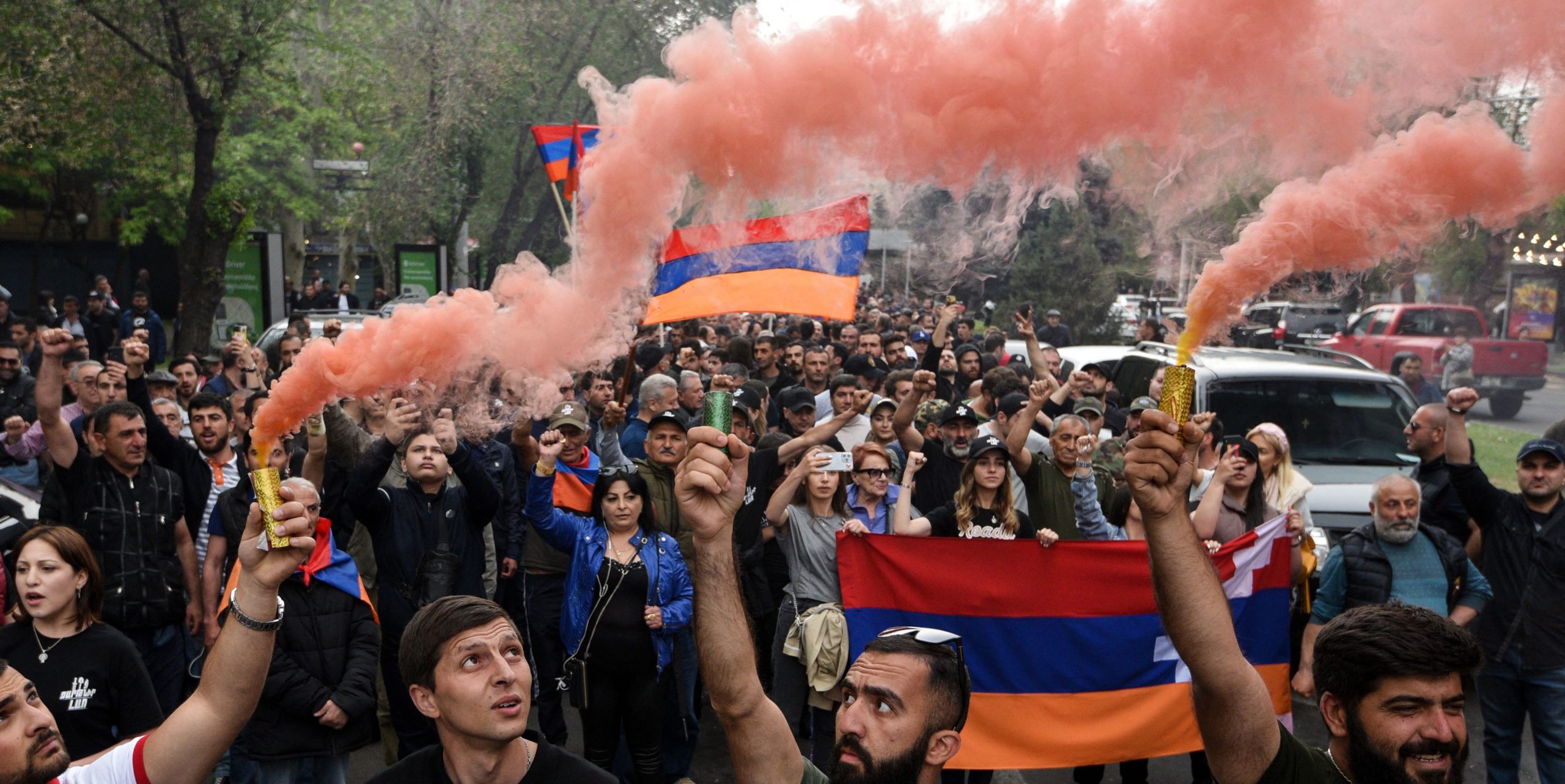Yerevan
The Moscow Kinotheatre dominates one of Yerevan’s sunny central squares. Outside, a giant chess board has been laid out in the shade of the grand Soviet-era building, with local children competing against each other to lift pieces half their size. Now, though, it is dawning on many in the Armenian capital that their country is at the centre of another strategic tussle, and Russia no longer seems to be watching over them.
In the early hours of Tuesday morning, Azerbaijan began a massive artillery barrage, striking targets well inside Armenian territory. Explosions rocked the city of Goris, close to the mountainous border, but shells also fell near towns like Vardenis, just 60 miles from Yerevan. According to Armenian officials, 105 people have already died with dozens more, including civilians, suffering injuries. As of Wednesday, the cannons and mortars are still firing, and reports indicate Azerbaijan is moving land forces in to take ground.
Azerbaijan accuses its neighbour of firing first, killing dozens of its troops, and insists it is only hitting military installations. “The issue is about our sovereignty and territorial integrity. All responsibility for the current provocations lies with the political-military leadership of Armenia,” Layla Abdullayeva, the spokeswoman for the Ministry of Foreign Affairs in Baku, tells UnHerd.
However, with satellite imagery appearing to show the tell-tale signs of wildfires triggered by shelling almost entirely on the Armenian side of the border, US Secretary of State Antony Blinken called Azerbaijan’s President, Ilham Aliyev, to insist on an “immediate halt to fighting.” By contrast, Blinken told Armenia’s Prime Minister, Nikol Pashinyan, that there is a need for the “disengagement of military forces,” something Yerevan is already demanding.
The two former Soviet Republics have been locked in a bitter and often bloody dispute over the region of Nagorno-Karabakh for more than three decades. Inside Azerbaijan’s internationally-recognised borders, a stretch of land the size of Lebanon has been governed by the Armenians who call it home since a brutal war that followed the fall of the USSR. Over 250,000 Azerbaijanis who lived alongside them were evicted, and regaining their lost land became an all-encompassing national mission.
Then, in 2020, well-armed Azerbaijani troops, supported by advanced drones shipped over by its ally Turkey, rolled over the fortified front lines, taking back swathes of territory they lost thirty years prior. Only a Moscow-backed ceasefire put an end to the offensive, leaving the local Armenians — and their unrecognised breakaway republic of Artsakh — confined to their capital, Stepanakert and a small number of surrounding villages. Russian peacekeepers were deployed to enforce the agreement.
Barely two years on, Baku accuses Yerevan of failing to keep to the terms of the deal — with armed Artsakh military personnel still stationed on its soil. Azerbaijan insists that all Armenian forces should have withdrawn as per its understanding of the ceasefire, while Pashinyan argues that the separatists are not under his command, and have the right to protect their homes. Those in Stepanakert fear they will be forced out or face ethnic cleansing if their troops stand down and the Azerbaijanis roll in, a fate Russia had previously said must be avoided.
However, now distracted by its war in Ukraine and with its army in tatters, Moscow appears to have lost control of the situation and its peacekeepers are seemingly unwilling or unable to enforce peace, with their most seasoned troops still in Ukraine. “My brother is volunteering with the defence forces,” one Karabakh Armenian tells me. “I got a text saying he was on the front lines, looking at the Azerbaijanis. I asked where the Russians were. Behind us, he replied.”
While Armenia is formally a Russian ally as a member of the CSTO military bloc, its requests for support during the 2020 war were turned down, with other states insisting they could not be called in because the conflict was playing out inside Azerbaijan’s official borders. Now though, with Armenian soil coming under fire, the CSTO has convened a meeting and dispatched its Secretary-General on a fact-finding mission. Despite that, Kazakhstan, one of its most important members, has indicated it would veto an intervention.
With Moscow focused on its increasingly costly invasion of Ukraine, and its partners split on a response, Armenia is calling on the EU and US to step in. But, with Brussels increasingly reliant on Baku for oil and gas to replace imports from Russia, and with few strategic interests in the region, its support for the country has not moved beyond general condemnations.
“Karabakh is ours and it will be ours again,” a senior Azerbaijani official tells me. “We have to keep the pressure on and show that the alternative to implementing the ceasefire is, well, fire.” With Baku insisting that the peace deal requires the withdrawal of all troops from the disputed region, it seems it is eyeing an endgame to the three decades of frozen conflict. And it knows few are in a position to stop it getting what it wants.











Join the discussion
Join like minded readers that support our journalism by becoming a paid subscriber
To join the discussion in the comments, become a paid subscriber.
Join like minded readers that support our journalism, read unlimited articles and enjoy other subscriber-only benefits.
Subscribe